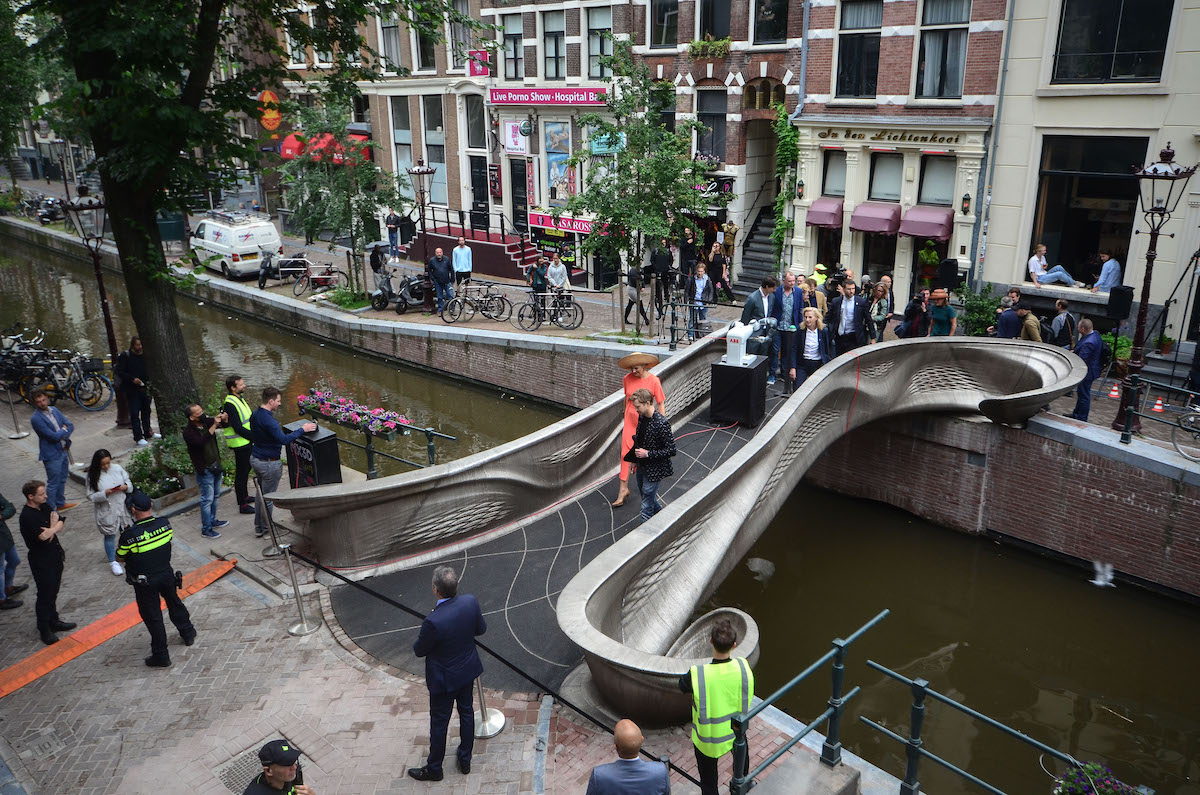
Queen Máxima of the Netherlands crossing the bridge (Photo: Adriaan de Groot)
For architects, engineers, and other designers, 3D printing is providing an opportunity to create truly innovative structures. One such project is the world’s first 3D-printed stainless steel bridge that has just opened over a canal in Amsterdam’s Red Light District. The new MX3D Bridge was designed by Joris Laarman Lab with MX3D, a startup founded by Laarman and Arup.
Initially proposed in 2015, this dynamic structure required many years of planning, six months of fabrication, and approximately 4.9 tons of stainless steel. The eye-catching bridge becomes even more fascinating when visitors learn it was assembled by robotic arms capable of welding stainless steel rods.
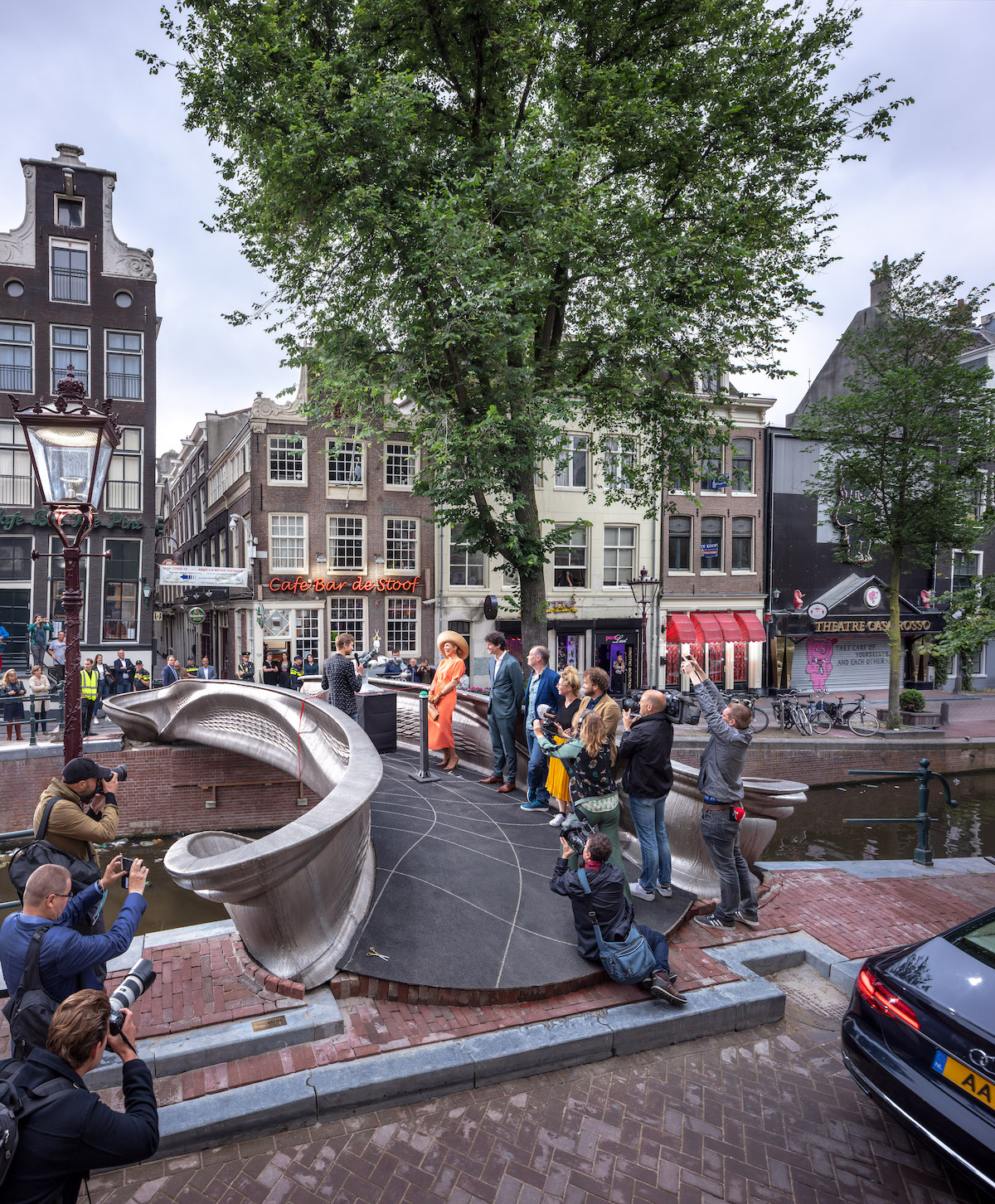
Photo: Thijs Wolzak
Aside from being a testament to the potential beauty of 3D-printed bridges and architecture, the group’s design also demonstrates the benefits of material efficiency. By using less material, future structures using a similar system may be lighter and more environmentally friendly. The MX3D Bridge is the first bridge of its kind, but it might provide valuable knowledge for future 3D-printed structures.
“Evolution is a truly wonderful process that we try to harness in our work,” says Laarman, owner of the firm that designed the bridge and co-founder of MX3D. “Endlessly trying, refining, improving until slowly, something emerges that is so ingenious it looks like magic if you don’t know what went on before. In our work, we try to capture some of that magic. Using emerging technology to develop objects and a visual language of the future that is informed by logic, we aim to make small leaps in that evolutionary process.”
The next step for the MX3D bridge is to monitor how it performs. Sensors along the bridge designed by the Alan Turing Institute and Arup will allow the team to understand how the bridge handles weather conditions, corrosion, and general use.
Introducing the first-ever 3D-printed steel bridge!
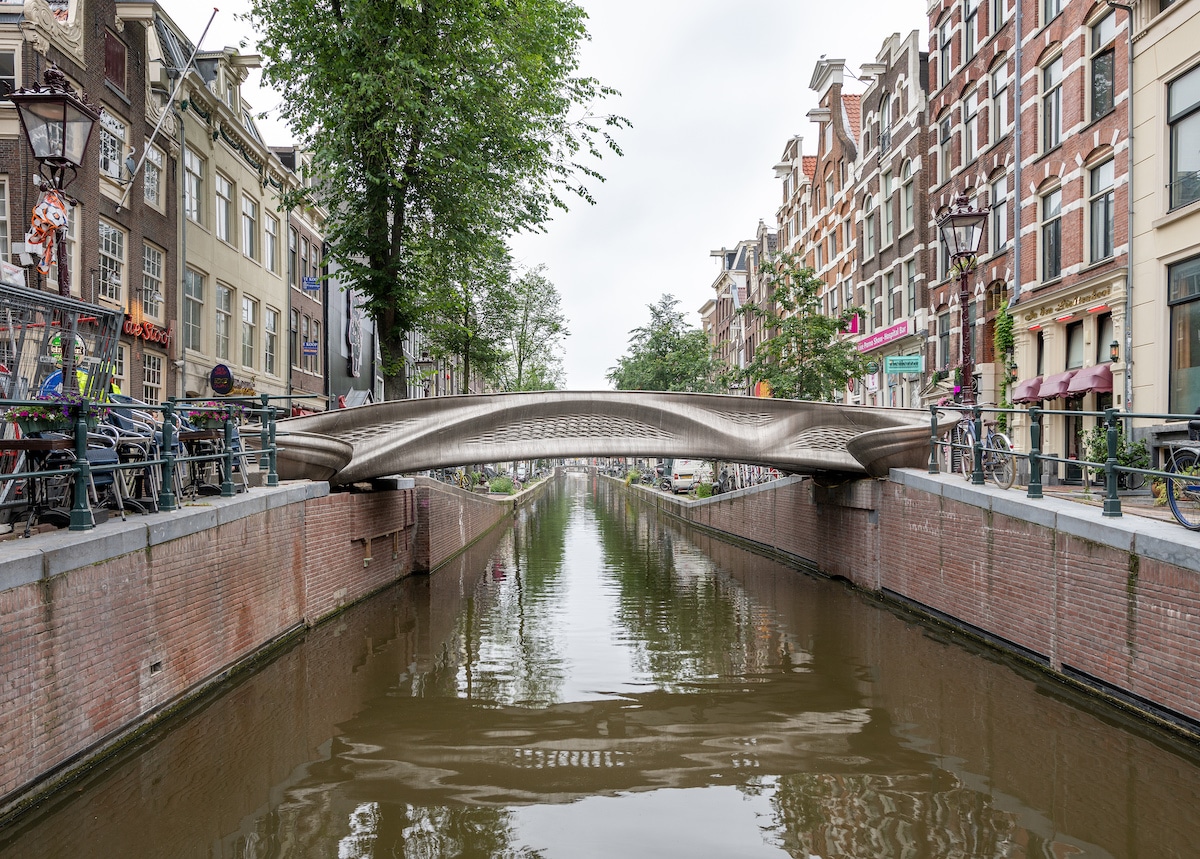
Photo: Thea van den Heuvel
The innovative MX3D Bridge spans a canal in Amsterdam’s Red Light District.
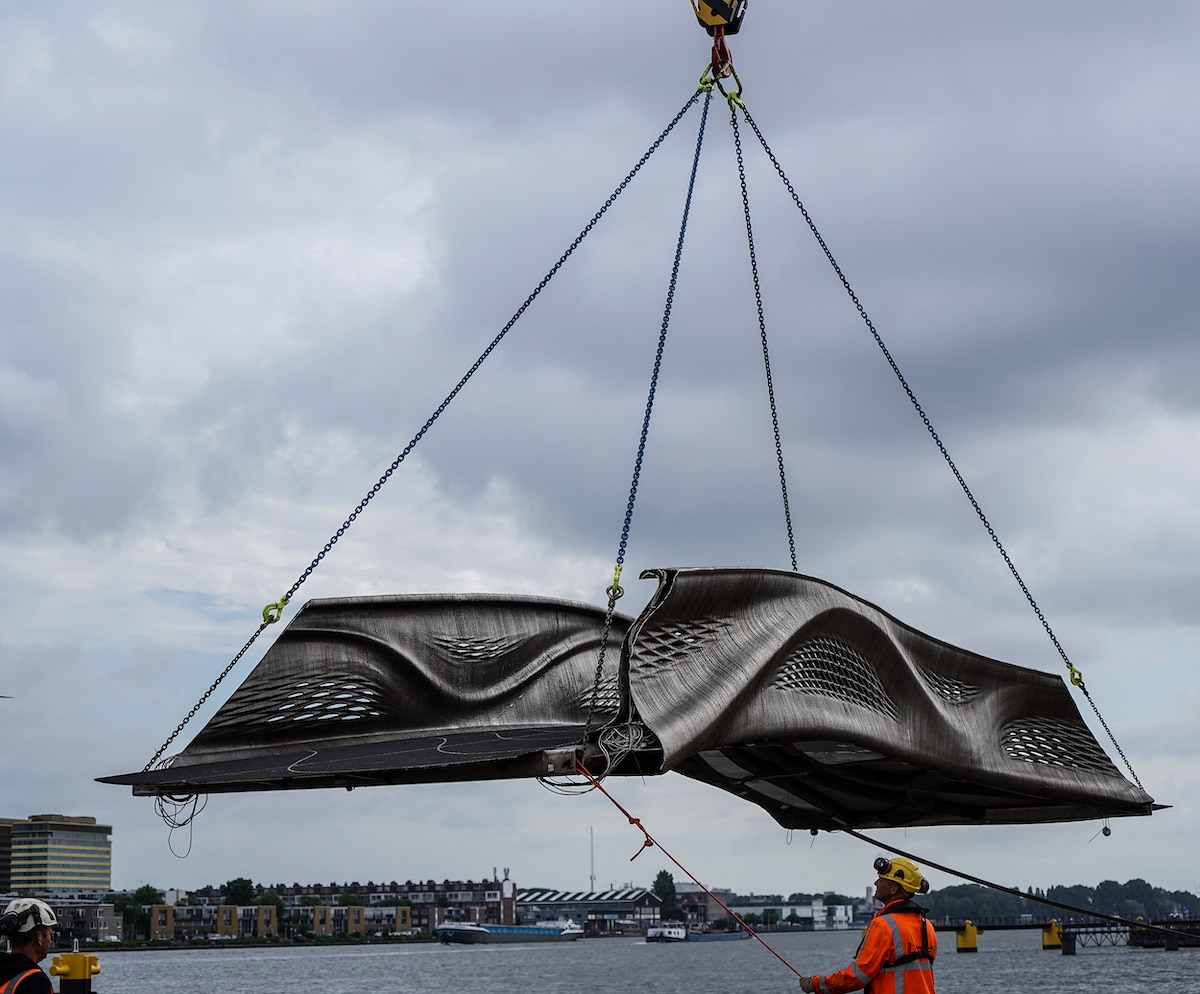
Photo: Merlin Moritz
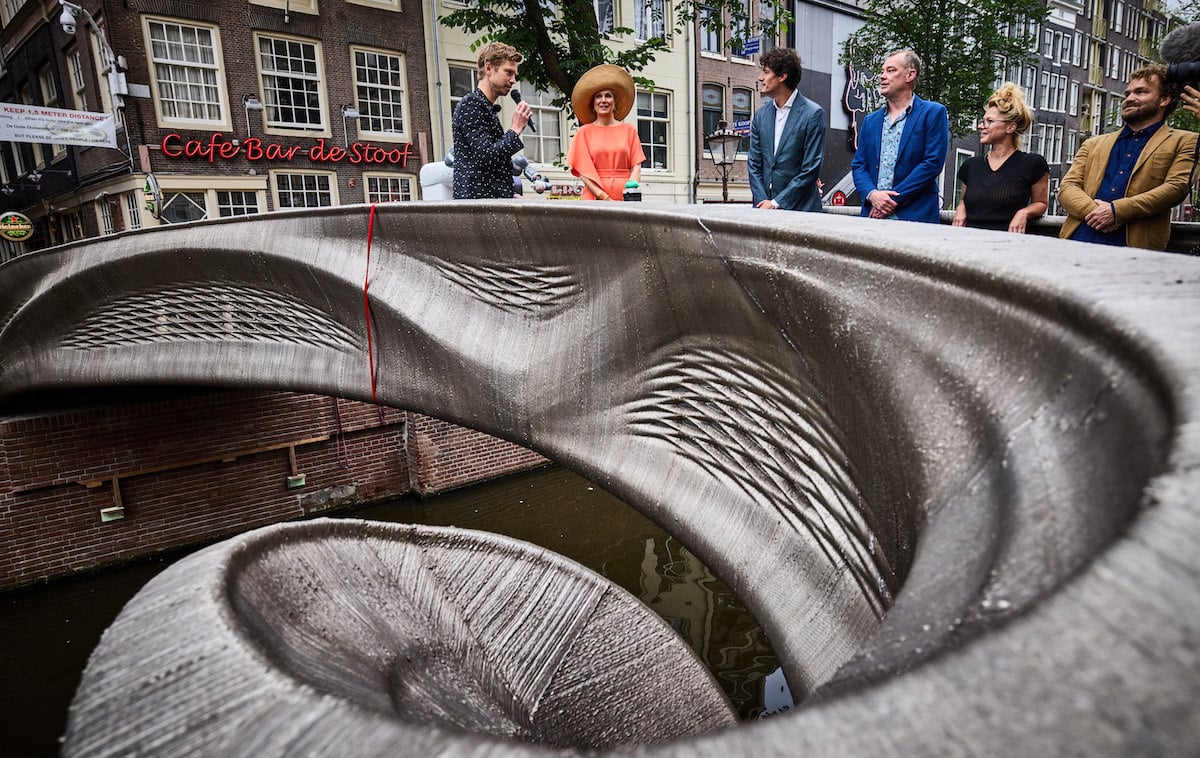
Photo: Jan de Groen
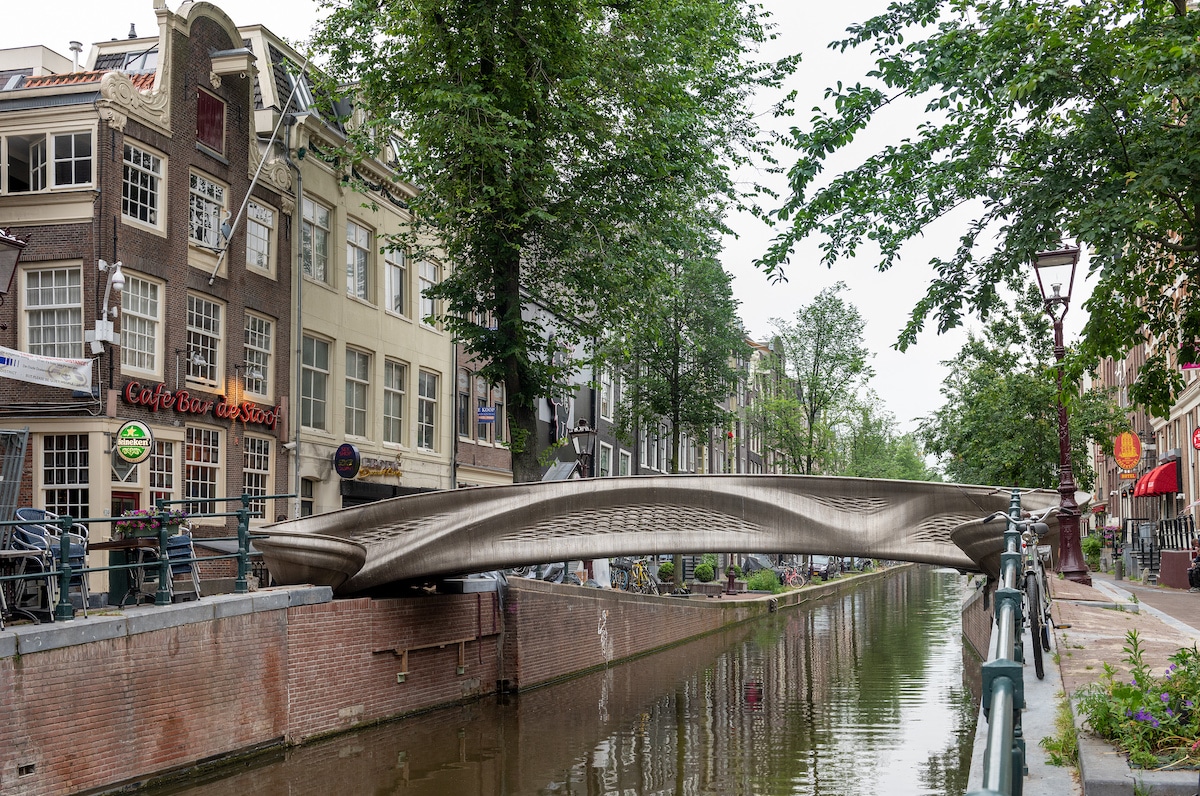
Photo: Thea van den Heuvel
